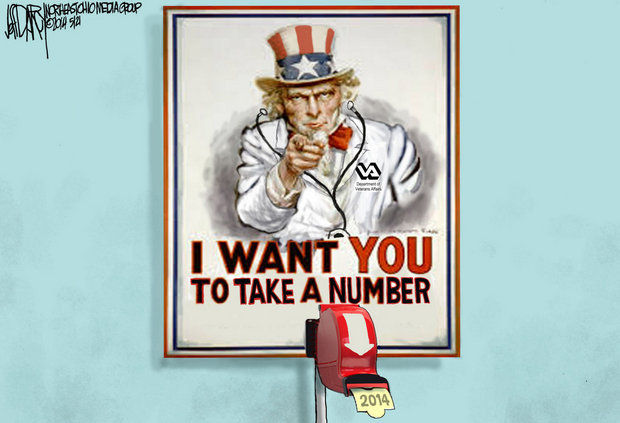300,000 Vets Died Waiting at the VA. Why? Government Healthcare.

300,000 Vets Died Waiting at the VA. Why? Government Healthcare.
By: Patrick Hedger, Policy Director-American Encore
Have you ever hear the expression “time is money”? It happens to explain a lot of the economics behind socialized medicine.
A recent report has found that over 300,000 veterans died on Veterans Affairs (VA) waiting lists for medical care. It’s hard to know to what extent the deaths of these men and women could have been avoided had they received the necessary care in time because the VA’s record system is so poor, but it’s safe to say that the VA may be responsible for more than double the deaths of American servicemen who died in Iraq, Afghanistan, Vietnam, and Korea combined.
The VA is exactly what hard-left progressives such as Bernie Sanders want for all Americans and only a step away from what is advocated by even moderate Democrats like Hillary Clinton. It is a single-payer single-provider system where the government controls the payment for and allocation of medical care resources. It is the same model that the British government follows for its entire population with the National Health Service. We keep being told by the advocates for systems like these to look across the pond and see “how well it works for them.” We don’t have to, because it is crashing and burning right in our own backyard and dramatically failing our nation's finest citizens.
The problem with the VA, while immensely tragic, is relatively simple: nothing is free. There is no such thing as a free lunch and there is certainly no such thing as free healthcare. When government pays the bill and the cost appears to be “free” to the patient, they pay in other ways that may not necessarily show up on a balance sheet. One way patients pay is in time.
When government controls medical care payments, resource allocation becomes constrained by budgets. Only so many beds, doctors, procedures, and pills are paid for within a given time. And when it comes to “free” healthcare, where patients have absolutely zero incentive not to over-consume, these things tend to run out very quickly. The rigidity of government control means no more of these things can be allocated quickly to meet demand. So what happens? People wait. It happens at the VA and it happens in the UK. Basic economic principles don’t discriminate.
With private insurance or cash-payment healthcare, you’ll undoubtedly pay a higher upfront cost for service. The difference is that you are seen almost immediately. Patients are incentivized to consume medical care more efficiently and prices can direct additional resources to where they are most needed in order to serve anyone left waiting. In addition, competition and choice help constrain costs, but that's a topic for another day.
The difference is simple and the choice is clear. With market-based allocation of medical care, patients pay up front with dollars for immediate care. With government medical care, patients pay with time itself, worsening conditions, lost income from not working, lower quality of life, and, as the tragic VA situation clearly demonstrates, too often with their lives themselves.







